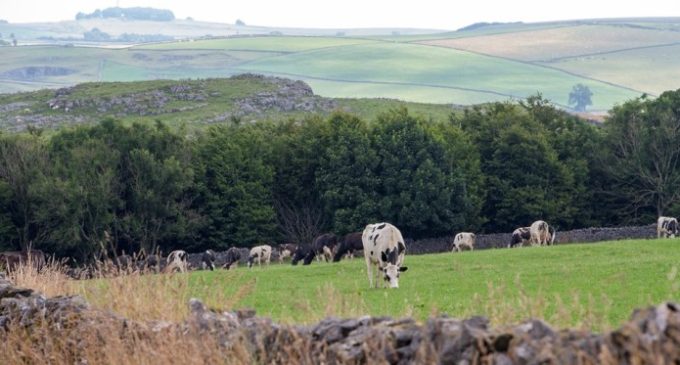UK dairy farmers warn labour shortages are threatening food production and fuelling inflationary pressures

The UK’s leading dairy co-operative, Arla Foods, has warned that a chronic shortage of suitably-qualified farm workers is already reducing production of nutritious dairy products and contributing to food price inflation, a situation that will get worse unless urgent action is taken.
541 of Arla’s 2,100 farmer owners in this country participated in the survey. The results show exactly how difficult it is to recruit new staff. 80% of farmers looking for workers have received ‘very few’ or ‘zero’ applications from people with the right experience or qualifications. A combination of the end of free movement of workers from the EU, the aftermath of the pandemic, and a host of other factors mean that more than three-fifths (61.3%) of farmers are finding it more difficult to recruit now than in 2019.
The shortage of people is already affecting production: milk volumes are down by around three percent now compared to last year. In Arla’s survey a small but significant number of farmers say they have already reduced output by cutting the number of milkings (4.3%) and/or reduced the size of their herd (6.0%) due to staff shortages. Many more say they will take these steps (6.9% and 6.8% respectively) or leave farming altogether (11.9%) in the next year if nothing changes.
Arla believes that a multi-faceted response to the shortages is urgently required. The cooperative has called consistently for specialist roles like herd manager to be added to the Shortage Occupation List in order to increase the size of the pool of available workers. It has started to engage with the new Institute of Agriculture and Horticulture and fully supports the focus on improved skills and qualifications for farm workers, as well as recruitment into the industry. But as a co-operative Arla is calling on the Government to go further.
Arla’s UK Managing Director, Ash Amirahmadi, said: “Addressing the labour shortage and the implications this could have for food security is vitally important. Now is the time for all of us, across government and industry, to work urgently and collaboratively to shift outdated misconceptions about farming and bring new talent into the industry.
“That’s why I’ve written to the Secretary of State calling on him to accelerate the review of the labour market promised in the Food Strategy White Paper, and for him to commit to a new cross-departmental strategy to bring talent into food and farming, making it a career of choice for people from all backgrounds. This will need to include on-farm skills and training, but will also address teaching in schools, the understanding and attitudes of careers advice providers, support for people wanting to change career, and a marketing campaign aimed at promoting careers in our industry.
“If we don’t act now the current shortages of people will only get worse, jeopardising production on farms, undermining our food security and further fuelling higher prices for consumers.”
Arla’s research covered around a quarter of all the co-operative’s farmers in the UK, who in total make up around 30% of all dairy farmers. It was conducted during May 2022.

































